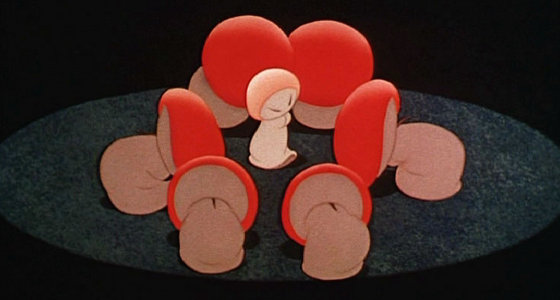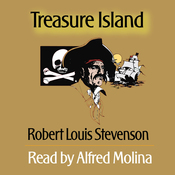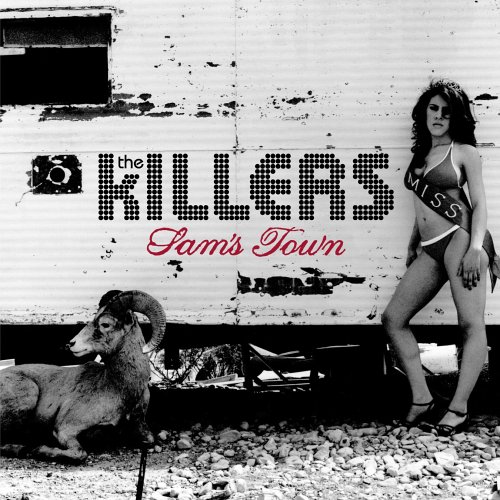This short story was inspired by skiing, religious music and the view from the top of a mountain. Enjoy!
Briga’s arms were numb from the cold and the climb, but still she continued. Her laboured breaths steamed in the frigid air. She reminded herself that it wasn’t much further to the top; the trees were growing sparse and the air felt thin. The sky was a pre-dawn indigo, and Briga prayed that it would bring some warmth when it crested the eastern horizon far below.
The wind picked up and powdery snow billowed across the face of the mountain. Briga shuddered and pulled her woollen scarf tighter across her face. Where it covered her mouth, the fabric was laced with crystals of ice. The edges flapped in the wind, along with the rabbit-tail tassels of her boots. The wind sucked warmth from the exposed skin around her eyes, but she gritted her teeth and continued to climb, relying on the wooden net-shoes lashed to her feet to stop her from falling into the drifts of snow that were deep enough to bury her.
Her large satchel felt heavier with every step. Only a day’s worth of food remained inside, but it also carried her offering to God, which was bulky and heavy enough on its own, and slapped against her back in the wind, making bruises along her ribs. Strapped to her back were her wooden skis and poles for the trip back down the mountain, and even the knife at her hip was beginning to feel heavy.
Briga took a short rest in the shelter of a copse of trees. She chewed on deer jerky to regain some energy, and washed it down with water from the bladder that was tucked underneath her jerkin. Her belly rumbled, demanding more, but she refused to indulge. She reminded herself that few made it this far up the mountain, and that she needed some food for the return journey in case she found no game.
After her rest, Briga refilled the bladder with snow and slid it back underneath her clothes so that the snow could melt into water, adjusted her meagre supplies, and continued up the mountain.
The wind died down suddenly and the snow settled. Briga stopped and shielded her eyes as the sun shot its first orange rays across the face of Hjunn, the Mountain of God.
The world lit up beneath her, brilliant and vast. The snow of Hjunn was bathed in a warm glow, and the light stretched across the landscape to reveal all of creation as Briga knew it. Far and away down the slopes of the mountain, the evergreens covered the land like a blanket. At the base of Hjunn, too far away for Briga to see, was her village, nestled in the valley. The river that ran from the Mountain of God through her village snaked out to the ocean far to the east, where the fishing clans lived. From Briga’s vantage point, the ocean was placid, indigo. She was so high up that she could see the Carpi mountains on the other side of the sea.
She breathed deeply and took it all in. Climbing Hjunn was as close as Briga would ever get to God while she still lived, and it wasn’t hard to see how His hands had built the world. From up above, hills were like mounds of clay; valleys and rivers were grooves made by fists and fingers.
The ocean was the sweat of God’s labour from building the world, and the tears that He wept for His wayward children, when they abandoned Him for lesser gods.
Up on His mountain, the water was pure, cold, unsalted. Only those strong enough to brave the climb could bask in the purity of His essence, in the temple of ice.
Briga shivered, not from the cold. She had trained her whole life for the pilgrimage, and the anticipation and thin air were making her dizzy. Only a few per generation could manage to scale the mountain alone, but Briga had been determined to be one of them, ever since she was old enough to look up and point at the peak. Only those who went alone could commune with God directly, and receive a holy quest.
Briga looked up at the peak of Hjunn and grinned. The temple of ice wasn’t far. It was on the other side of the peak, hidden from her view. She had reached the summit, and escaped the fate that befell the women of her clan. With renewed vigour, she resumed her climb.
As the slope became more severe, Briga loosened her leather straps and brought out her wooden poles. She was hugging the rock face of the mountain in places, and felt as though she was walking sideways across the powder as she wound her way around the peak.
The temple of ice came into view quite suddenly. Gleaming in the sunlight, it nearly blinded Briga as she rounded a corner of sheer limestone. It was just as her father had described it to her so many times when she was a child.
Over the centuries, snow would fall upon the peak and remain, too high up to melt fully and join the rivers far below. However, sometimes the sun would warm the peak just enough to melt the snow together into sheets of ice. As the years went on, the sheets of ice grew thicker, until most of the limestone peak was covered, double its original size.
The ice was carved fresh every year by the high priest, around the entrance to the cave that Njal the Holy had dug into the side of the mountain. Briga gazed up in wonder at the frozen frescoes that bordered the icy maw. At the base on either side of the cavern entrance, the carvings depicted pilgrims climbing, carrying offerings to God. Some held gemstones and coins, others fine weapons or carved heirlooms. Above Briga’s head, a likeness of Hjunn had been carved into the ice, and the scene depicted pilgrims resting and eating, praying and meditating in the Pool of Purity. The high priest stood near the entrance and offered spirit water to a man whose icy eyes seemed to shine with refracted light.
Briga was startled out of reverie by a cold sensation on her cheek. She gazed up to see a little dagger of ice forming, spitting little droplets of water. She smiled. A warm day on the peak was a sign that God was pleased. Briga took one last look at the panoramic view, the sight of creation as God saw it. She wanted to remember it, in case the clouds rolled in beneath her while she was in the temple.
Briga turned and looked into the cave. The entrance was dark, but she knew from what her father had told her that there was a kind of glowing rock deep inside the mountain. She unstrapped her skis and left them propped up by the entrance, along with her net-shoes and poles.
Briga made her way carefully through the tunnel, into the temple of ice. The path was winding and steep, leading deep into the mountain, and she had to slide her feet slowly across the rocky ground to keep from slipping. Her hand trailed along the wall for balance, and soon the light from outside was completely gone. She went forward slowly, blindly. Every shuffling step echoed up and down the tunnel. It was so quiet that she could hear her heart beating in her chest, and every breath she took thrummed in her ears. The anticipation was making her mouth water; she wanted to slake her thirst on the essence of God, the most holy spirit water crafted by the high priest. She wanted her quest.
After a few minutes, Briga could see her hands again. The tunnel ahead was suffused in a soft cobalt glow. Her footsteps became quicker, more sure. Suddenly the tunnel opened into a vast cavern.
It was difficult for Briga to tell where the stalactites ended and the icicles began. Everything in the cavern was covered in ice, like panes of glass. Beneath the sheets, some of the rocks glowed blue, casting light about the chamber. Briga took off her gloves and rubbed her hands together. Her skin looked as white as snow in the soft blue light.
A voice echoed throughout the cavern. “Welcome, child of God,” it boomed deeply. Briga wheeled about but couldn’t identify the source.
Suddenly, he was there in front of her. He was stooped and old, wrinkled, with wispy white hair and a long flowing beard to match. Though he was much shorter than Briga, he had wide shoulders beneath his snow-white robe, and she could tell that he must have been a strong man in his youth. His hands were bare, but fleshy and pink. He did not appear to feel the cold at all.
The high priest clasped Briga’s arm warmly and smiled. Unlike the icy blue of the cavern, his eyes were warm like a summer sky.
Briga removed her woollen cap, and her white-blonde hair tumbled down her shoulders as she bowed to the high priest. “I am honoured to be in your presence, holy one.” She had rehearsed her words every day since childhood.
“How many set out on your pilgrimage?”
“One.”
“And one I do see before me. Did you bring an offering?”
“I have brought an offering for God.”
“And what do you seek in return? A boon, a quest, or enlightenment?”
“I seek a quest.”
“Then rise and follow,” the high priest commanded. Despite his age, he moved swiftly, gliding across the icy floor on smooth, supple leather boots. He led Briga across the cavern to another tunnel, which led further down into the mountain.
The tunnel was long and sloping, but well-lit by the glowing rocks, and the floor was covered in pebbles to prevent slipping.
“How was your climb, Briga?” the high priest asked.
“C-climb?” Briga stammered. She hadn’t expected the high priest to know her name. “It was the greatest challenge of my life, holy one…but to be honest, I enjoyed every moment of it.”
The high priest chuckled. “Greatest challenge thus far, you mean. That was a test of your physical limitations. God has yet to test your faith.”
Gradually the ice on the walls seemed to recede, and the air grew warmer as Briga followed the priest down the passageway. Soon she was sweating underneath her furs, though the high priest seemed to remain unaffected by the change in temperature.
He led her into a room carved out of limestone, decorated in the old runic script. The chamber was simple, but cozy. A cot lay in the corner, covered by a blanket. A rough wooden table and chairs were in the centre of the room, unadorned. There were three other passageways leading from the room, to places Briga could only guess at.
The high priest gestured to the table. “Sit and rest, Briga, daughter of Bjarl the Fearless.”
Before she could even thank him for the hospitality, the high priest had disappeared down one of the passageways. Briga unwound her scarf, removed her gloves, and set them on the table along with her cap. As she sat in the chair, her weariness hit her all at once. She was asleep in moments.
She dreamed she was back on the mountain, climbing. It wasn’t cold at all; it was bright and sunny and even the snow was warm. She was merely hungry. There were deer and rabbits and mountain goats all around, but she wasn’t allowed to eat them because they all belonged to God. Her stomach was growling at her like a bear and she had to make water. The trickling sound was reminding her.
She reached the temple of ice, finally. The carvings on the entrance had all melted into long icicles like swords. The water was trickling down the sides of the mountain in little rivulets that became waterfalls. She was trying to reach the tunnel through the deluge of water and slush.
“Swim against the current, Briga,” her father said. He was beside her, bracing himself and standing tall against the flow. “God’s tears will wash you away if you are not strong. The weight of our sins pin us to the ground. You must learn how to fly.”
“But I don’t have any wings,” she said in a child’s voice.
“Not that anyone can see.”
Then the water turned red and frothy, and Bjarl was swept away, down the mountain.
“Daddy, don’t go!” Briga screamed.
She awoke. Her furs were soaked in sweat and her back was aching. Upon the table, a simple meal of dark bread and raw onions was laid out on a plate. The high priest was pouring a steaming, dark red liquid into two stone mugs. As Briga heard the trickling sound, she sat up.
“My apologies, holy one. I must make water. Where do I…?”
He nodded and smiled, pointing to one of the passageways. Briga bowed and left as quickly as her legs would take her. The tunnel was a short one, and ended in a small hovel with a hole in the bottom. The wind whistled furiously past the hole. Briga danced from foot to foot as she pulled down her leggings, and glanced down.
She giggled despite herself. The hole was too small for a grown woman to fit through, but it was a sheer drop, at least a hundred metres to the rocky cliffs below. As Briga squatted and shivered from the feeling of the cold air on her bare flesh, she burst out laughing. The image of the high priest doing the very same thing, letting his refuse fall down the mountainside, was as funny as it was inappropriate to think about. Briga wondered if it was the thin air making her so giddy.
She laced up her leggings and returned to the priest’s room. He was leaning back in his chair, sipping the deep crimson beverage from his own mug.
“I laughed the first time, too,” he remarked.
Briga turned as red as the drink in front of her and could not find a reply.
The high priest gestured to the bread and onions. “Please, eat and drink. This is no place to be modest. God created us in his own image, with needs in our bellies, hearts and loins. One of those can be fulfilled here, and you need your strength if you are to commune with Him.”
Briga’s belly rumbled audibly. She was starving; on the journey up she’d eaten only enough to sustain herself. However, she didn’t want to appear rude in front of the high priest. She tore off a chunk of dark, seed-filled bread and forced herself to take small bites. She washed it down with a generous swig from the mug in front of her, and found the liquid to be hot, strong and well-spiced. It was so delicious that she took another deep sip, and her head began to buzz. Briga suspected that it was grutmedhu, and wondered how the high priest had managed to procure a barrel since it was produced outside of the lands belonging to the clans of Frullend.
He seemed to sense her thoughts. “Some bring offerings not just for God, but for me,” he said with a twinkle in his eyes. “The rest I gather when I come down the mountain in the spring.”
Briga nodded and grabbed a large yellow onion from the plate on the table. She took a big bite and her eyes watered, but she savoured the tangy-sweet juice.
“You must have questions about the communion,” he continued, “but those are buried under your weariness and hunger, I’m sure. We shall speak further after you have rested properly, Briga. You will need to be mentally and physically at your best before you face Him.”
“Of course, your holiness,” Briga said between bites of her onion. The remainder of the meal passed in a comfortable silence. It did not take long for Briga’s belly to fill; she had conditioned herself to eat conservatively. After she had drained the last of her mug, the high priest led her to another adjoining chamber, where a series of straw mats were arranged in a line against the bare rock wall. Wordlessly, Briga chose one and lay down without even removing her furs. A question formed in her mind about the warmth of the cavern and the ice in the chambers above, but it drifted away along the rest of her consciousness.
She dreamed again.
The high priest was talking to her, but she was trapped in a block of ice. For some reason, she could move her hands to try and communicate, but her lips were frozen shut.
“…rest here, and once you are awake I can bring you to the Pool of Purity.”
Briga attempted to form a reply, but her hands were clumsy, her fingers stiff as icicles. Why am I trapped here? She asked. Is this a part of the ritual? The high priest seemed to understand her fumbling attempts at communication, because he answered her, but his reply didn’t fit her silent questions.
“Not at the same time,” he said. “A communion with God is a solitary thing. She was the first to enter the temple, so she will make the first offering. However, I have a feeling that…no, never mind. That is for God to decide, not his servant. Still, this is a serendipitous occasion. I am glad that you have come, my friend. Now that you and Briga are here…”
But I am Briga, her mind screamed. Her fury resonated so loudly that the block of ice shattered, and the din drowned out the rest of the priest’s words. She fell to the ground as the temple melted around her. When she looked up, it was her father standing before her in the sunshine at the peak of the mountain.
“You screamed just as loud the last time you were here,” he said. “It’s your tenacity God wants to see, not your defiance. When are you going to learn to separate the two?”
“The last time I was here?”
A strange buzzing noise jolted Briga awake. She experienced a brief moment of disorientation, and pressed her hands firmly to the ground to make sure she wasn’t sliding down the mountain. She noticed the cavern walls around her and remembered where she was. She tried to remember what she was dreaming about, but all she could remember was her father telling her that she’d been to the temple before.
She heard the loud buzzing sound again and sat up straight, clutching the knife at her hip. Her eyes darted around the cavern to identify the source of the odd noise.
It was coming from a body, wrapped up in furs and sleeping in another cot. Briga heard the noise once more, and breathed a sigh of relief when she realized it was just a loud snore. The loudest snore she’d ever heard. Briga relaxed her grip on her knife and approached the sleeping form, which was buried under a mound of dark furs. She hadn’t expected to see another pilgrim at the temple; most clanspeople climbed the mountain in groups for safety’s sake, and feasted before their journey so that all the villages would hear of their bravery.
Briga had gone alone on purpose. Only her mother had known about the journey, and even she had tried to stop her. Briga wondered who the other pilgrim was. She circled around so that she could try and get a glimpse of the traveller’s face.
Her eyes widened in shock. It wasn’t a member of the clans at all. The sleeping face poking out from the furs had a broad, flat nose, a jutting jaw, a ruddy complexion and a sloped forehead.
The other pilgrim wasn’t even human. Briga couldn’t even begin to wonder how God felt about a hama visiting the top of His mountain.

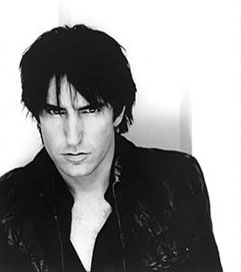



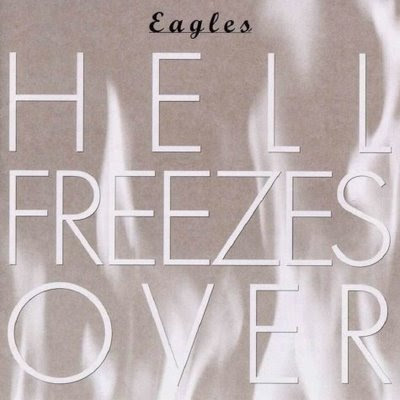.jpg)
